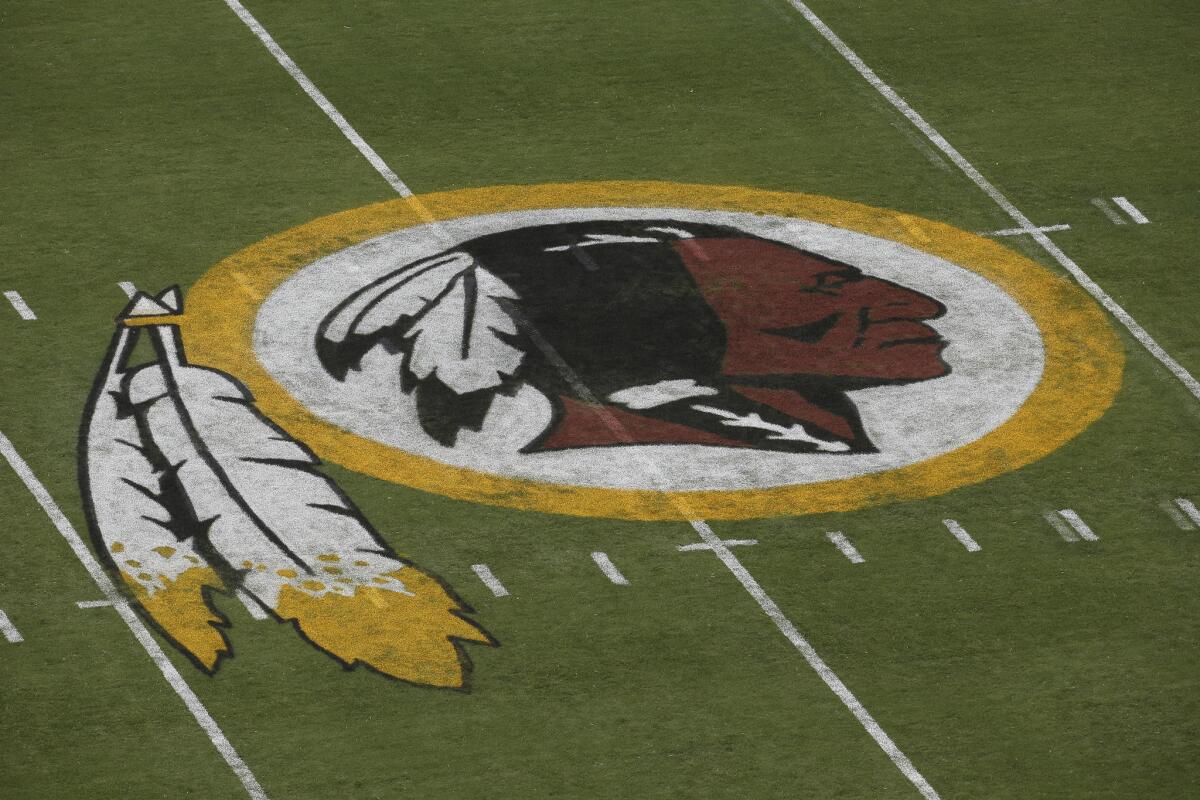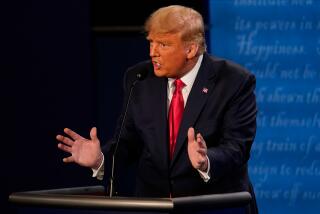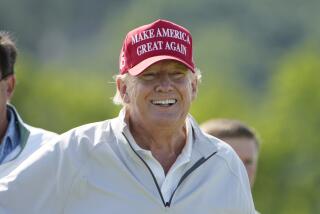Opinion: Redskins lose trademark protection, not free-speech rights

A federal judge has ordered the Patent and Trademark Office to cancel registration of the Washington Redskins’ trademark, ruling that the team name may be disparaging to Native Americans.
- Share via
The central issue in the legal fight over the Redskins trademark is whether it may disparage people or bring them into contempt or disrepute. Before the courts can answer that question, though, they’ll have to decide whether denying protection to a mark based on its content violates the owner’s free-speech rights.
U.S. District Judge Gerald Bruce Lee in Alexandria, Va., ruled Wednesday that no, there is no conflict between the Lanham Act -- the main federal trademark law -- and the 1st Amendment. He went on to find that the team’s name shouldn’t have been registered as a trademark because it “ ‘may disparage’ a substantial composite of Native Americans.”
As important as the disparagement question is to the Redskins and the National Football League, any judgment the courts make would apply to just one name: Redskins. The question about the interplay of trademarks and free-speech rights, on the other hand, could affect any potentially offensive logo, brand or bobblehead.
The Lanham Act instructs the government to register any proposed trademark on request unless it falls into one of six exempted categories. These include governmental flags, the images of living persons and geographic locations. More to the point here, the law denies registration if the proposed trademark “consists of or comprises immoral, deceptive, or scandalous matter; or matter which may disparage or falsely suggest a connection with persons, living or dead, institutions, beliefs, or national symbols, or bring them into contempt, or disrepute.”
The team argued that the latter restriction violated its 1st Amendment rights by potentially driving ideas out of the marketplace and limiting the public debate over the propriety of terms such as “Redskins.” It’s easy to rebut those assertions: As Lee notes in the ruling, companies can still use the logos, slogans and other marks without trademark protection. In other words, declining to register “Redskins” as a trademark doesn’t stop the team from putting it on their uniforms, signs and souvenirs.
Bruce Sunstein, an attorney who specializes in patent and trademark law, agreed in an interview Wednesday. The restriction in the Lanham Act “doesn’t prevent somebody from saying things; it just prevents registration,” Sunstein said.
Granted, the team would have far less incentive to use a brand name or a logo that it could not register as a trademark. The team also pointed to a unanimous 1991 Supreme Court ruling against a New York state law that heavily taxed certain books written by criminals, saying it was unconstitutional to impose fees on speakers based on what they say.
But the freedom from laws that stifle your expression doesn’t create an entitlement to a government-mandated monopoly over those expressions. Imposing a burden on speech based on its content, Lee wrote, isn’t the same as refusing to give special protection to speech based on its content. Besides, a company that uses a brand name or logo that isn’t protected by federal law may still block others from using it by suing under state law, the judge wrote.
The least persuasive part of Lee’s ruling on speech and trademarks is the most sweeping one. He declares that a trademark registration is federal government speech and as such is not entitled to 1st Amendment protection.
The problem with that argument is that there’s no expression involved in registering a trademark, other than the publication of those that are approved. It’s just a regulatory or administrative act by the government. The expression comes in creating and using the mark. Real governmental speech happens when the president gives the State of the Union address or Congress debates a law.
A better analysis is that the trademark registration system is a government program to support commerce, and the government is free to decide that potentially offensive speech isn’t eligible. As Sunstein put it, “It’s something that regulates how identifiers are used in trade. Congress and its administrative bodies can say, ‘In the channels of trade, we want to make it so people can go into them without worrying about disparagement.’ ”
Critics of the ruling will still insist that regardless of what the Lanham Act says, the government shouldn’t be in the business of deciding what’s offensive. If it’s going to provide protection for the marks used in trade, it can’t pick and choose among them based on their content.
Still, it seems odd, indeed, to apply the logic of free expression to trademark registrations, which exist to restrict expression. Even if it loses on appeal, the team would still be free to use the name any way it likes. It just wouldn’t be able to do so with the federal government’s imprimatur of exclusivity.
Follow Healey’s intermittent Twitter feed: @jcahealey
More to Read
A cure for the common opinion
Get thought-provoking perspectives with our weekly newsletter.
You may occasionally receive promotional content from the Los Angeles Times.







